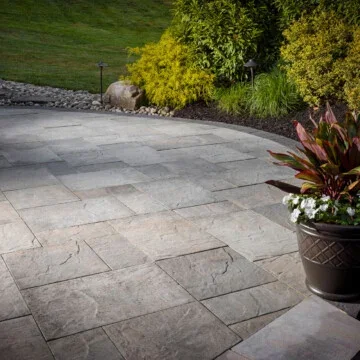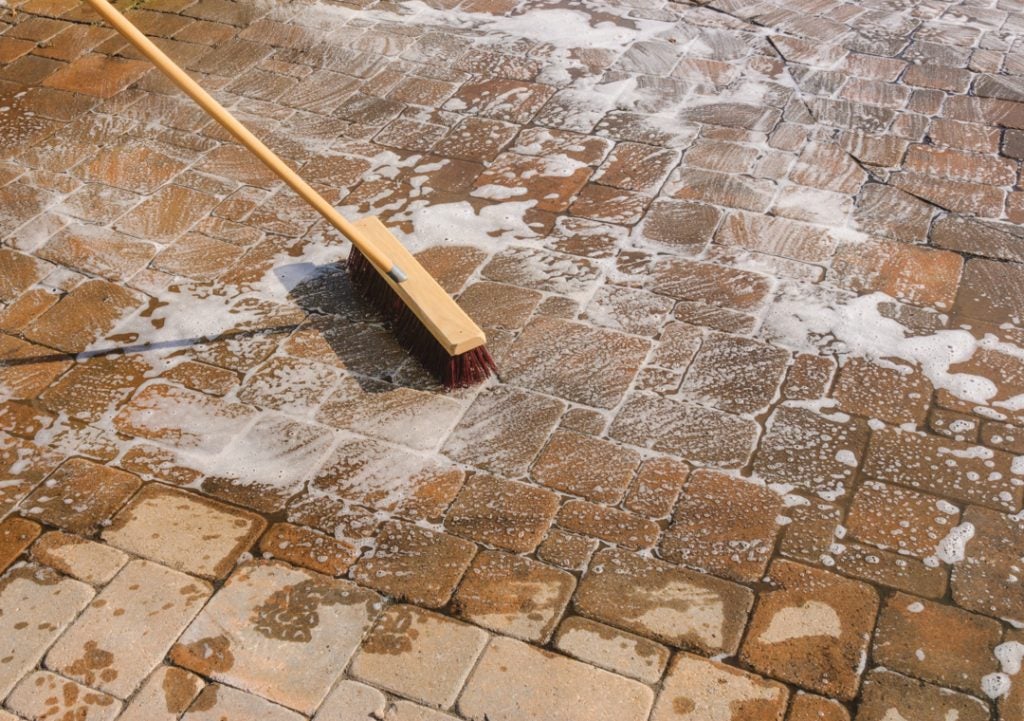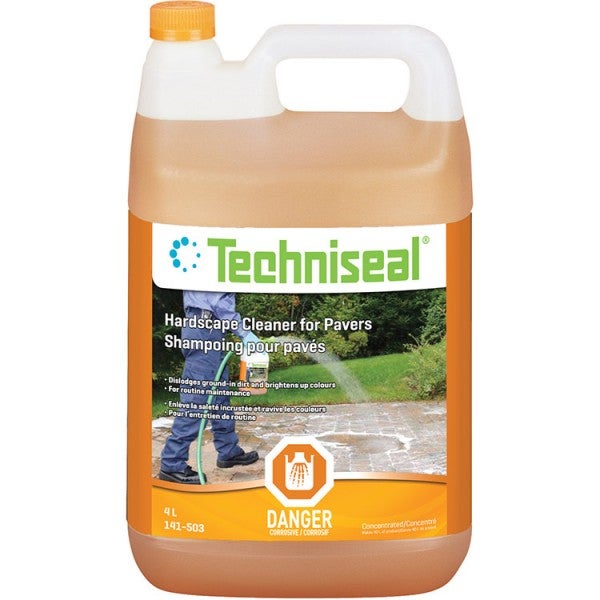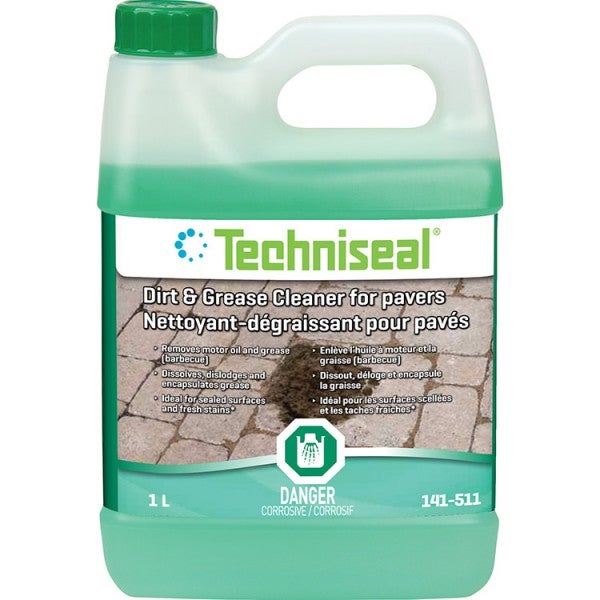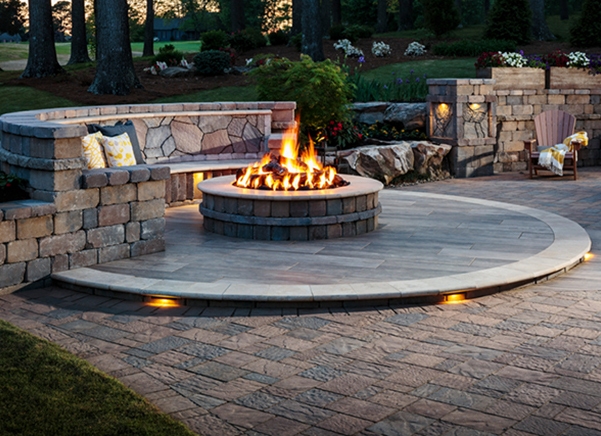Pavers form the foundation of patios, outdoor living areas and walkways around houses and yards. Taking regular care of this investment can go a long way to keeping them looking their best and lasting longer. While well-installed pavers need little maintenance, there are some small things you should do to keep them fresh during the summer.
Depending on where you live, summer’s peak months can bring extreme sun or damp and humid conditions from frequent rains. Other areas, like the deep south, can be a mixture of both. Intense sunlight can cause pavers to fade, especially if they are not sealed. A rain and sun mix promotes the growth of weeds along with mold and mildew. The following are some ways to protect your pavers this summer and essentially all year long.
Keeping Patio Pavers Clean is Key
Debris, dust, pollen, tree sap and food stains can all make a mess of your pavers. If left long-term, this build-up can be detrimental to pavers. Sweep or blow your pavers every week or so to get rid of surface dirt and grime.
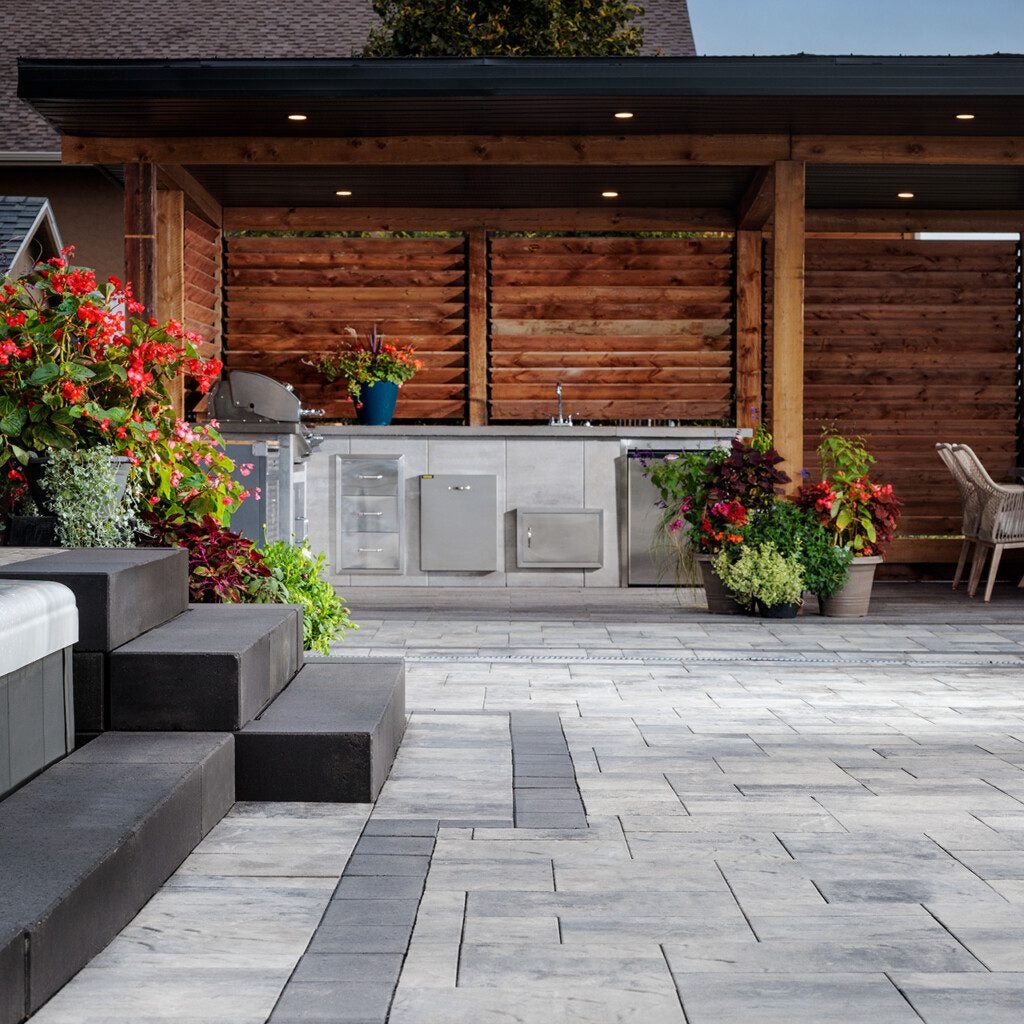
Tackle Those Stubborn Paver Stains
If food stains, grease or oil have caused set-in stains, you may need to attack these areas with a deck brush, push broom, or pressure washer in combination with a specialized cleaner. Remember, if using a pressure washer, make sure to find the right level of power on the water jet. If it’s too high, the stream can damage the paver. Techniseal offers a variety of cleaning products made specifically for use on pavers to actively remove tough stains without discoloring them.
Kill Weeds Naturally
During summer, weeds can be pretty prolific – not only in your beautiful flower beds but also between your pavers. There are quite a few synthetic chemicals out there to remove weeds, but you can use a more natural solution. Try mixing a gallon of white vinegar, one cup of salt, and a tablespoon of liquid dish soap. The acidic vinegar and salt work to pull moisture from the weed, while the soap acts to allow better absorption by the plant. Spray it on a sunny day, and you should see it work quickly. However, be warned, the five-percent acetic acid in most household vinegar may not be strong enough to kill some weeds. In that case, you can always pull them by hand.
Call in the Copper to Remove Mold and Mildew from Pavers
Moss, mold, and mildew feed on dust, tree sap, minerals, and organic debris. Then, when water is added, this trio of “M words” are off and growing. In fact, even morning dew is enough to sustain the growth of these green and black organisms. If you’re looking for a natural way to curb moss/mold/mildew, it’s copper to the rescue. Copper is a natural biocide and harmless to mammals. Mix up to 1.75 pounds of copper sulfate in a gallon of water and spray on the affected area. However, be careful of overspray as this solution kills indiscriminately and can be harmful to other greenery. If you have thick moss growing between the paver joints, you may need to remove this by hand.
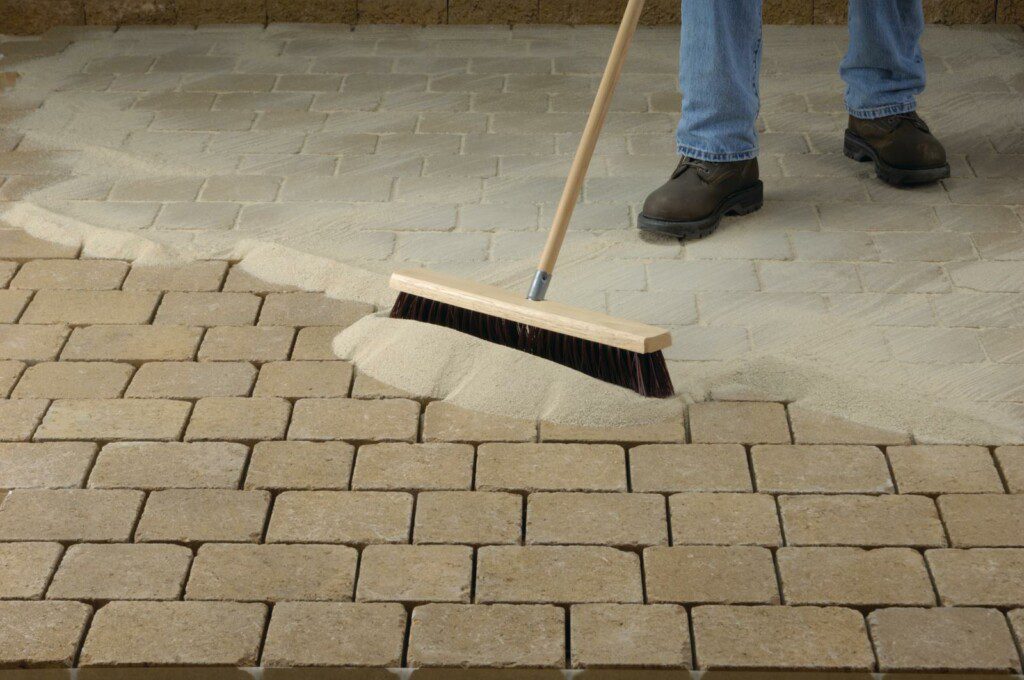
Polymeric Sand Can Prevent Weeds Before They Start
Sometimes sand is used to fill the gaps between pavers and provide extra stability. However, weeds can still pop up through the sand. Polymeric sand from Techniseal fills joints and can protect your pavers from both weeds and insects, and it’s easy to apply.
Use Sealer to Protect Your Pavers
The ultimate protection from the sun, rain, and weather in between is to apply a sealer. Techniseal® sealants are great products that can not only prevent stains but also keep paver colors from fading. Before sealing your pavers, treat them with Techniseal® Paver Prep, which cleans the pavers and also opens the pores on the surface to allow better penetration of the sealant. You should still clean and sweep away any debris prior to applying Paver Prep.
